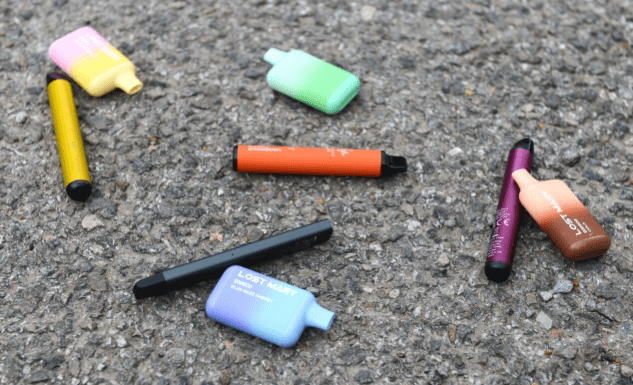Britons are being warned that stockpiling disposable vapes ahead of this weekend’s ban could lead to devastating house fires, due to their hazardous lithium batteries.
From Sunday, it will be illegal for shops and online retailers across the UK to sell disposable vapes. The nationwide ban aims to tackle youth vaping and reduce the tidal wave of litter these single-use devices create.
But as the ban approaches, there’s growing concern over a sharp rise in disposable vape stockpiling. A recent survey by online nicotine seller Haypp found that a staggering 82% of disposable vape users plan to hoard supplies before they disappear from store shelves.
The Local Government Association (LGA), which represents councils and fire services, has issued a stark warning: improperly stored disposable vapes can be lethal.
The real danger lies in the lithium batteries they contain. If mishandled, these batteries can enter a state known as thermal runaway—a process where the battery’s internal temperature skyrockets to around 600°C, releasing toxic gases and triggering fires.
Charity Electrical Safety First has echoed these fears, stating the potential for disaster is real and often underestimated.
“With 8.2 million vapes now thrown away, or recycled incorrectly, every week, single use vapes blight our streets as litter, are a hazard in our bin lorries, and are expensive and difficult to deal with in our recycling centres,” said Cllr David Fothergill, Chair of the LGA’s Community Wellbeing Board.
He added: “We would also urge caution to anyone stockpiling disposable vapes. Failing to store disposable vapes correctly could cost lives, given the significant fire risk they pose.” Aside from fire hazards, disposable vape stockpiling also creates environmental chaos.
- These devices are non-rechargeable and non-refillable.
- Most are tossed into black bins or discarded in the streets.
- Their integrated battery-plastic design makes recycling almost impossible.
- Batteries leak toxic substances, endangering workers and contaminating landfills.
Even at recycling centres, workers must dismantle these units by hand—an expensive and dangerous process. Fires caused by improper disposal have also been reported in bin lorries, further escalating the public safety threat.
Taxpayers end up footing the bill for fire damage, specialist waste treatment, and street cleaning.
The ban covers all disposable vapes, regardless of nicotine content, and applies to retailers across England, Wales, Scotland, and Northern Ireland. Both in-store and online sales will be affected.
Reusable vapes, however, remain legal. Retailers found breaching the ban face a £200 fine for a first offence, with unlimited fines or even jail time for repeat violations.
A spokesperson from the Department for Environment, Food and Rural Affairs (Defra) commented on the need for the ban: “Usage among young vapers remains too high, and the ban would put an end to their alarming rise in school playgrounds and the avalanche of rubbish flooding the nation’s streets.”
The Tobacco and Vapes Bill, currently progressing through Parliament, could bring even stricter regulations. Proposed powers include restrictions on:
- Flavours
- Packaging
- Marketing tactics
These additional steps aim to curb youth uptake and reinforce the UK’s commitment to long-term public health.
Key Takeaways:
- Disposable vape stockpiling can trigger deadly house fires.
- Lithium batteries in vapes can explode under poor storage.
- 82% of users plan to stock up before the UK ban takes effect.
- Environmental and taxpayer burdens are growing.
- Rogue retailers risk severe penalties.






